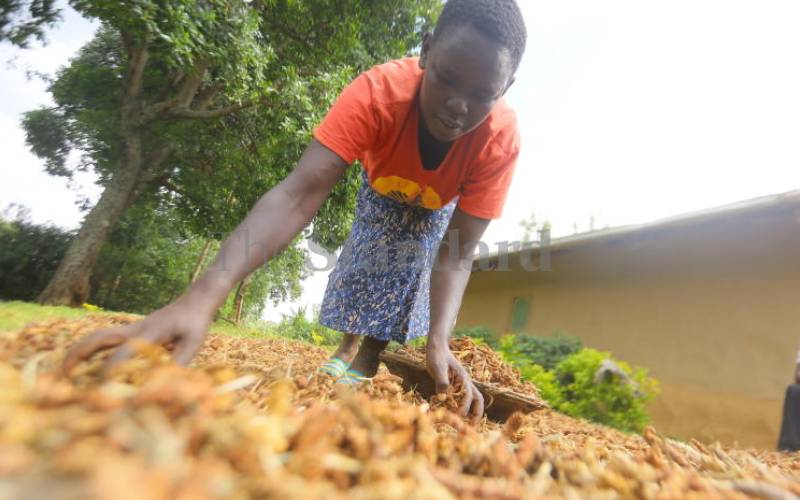×
The Standard e-Paper
Fearless, Trusted News

Edna Machuki a farmer dries finger millet at her Kiobegi home in Kisii County. [Sammy Omingo, Standard]
Reduced growing of traditional crops in the Gusii region could lead to extinction of highly nutritious indigenous food species in the long term, the Kisii County Director of Agriculture, Nathan Soire, has said.